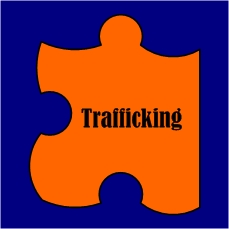Irish Government drops surrogacy from family law reform

“The Irish Government has removed provisions on surrogacy from draft legislation reforming family law in the country, while including proposals to prohibit anonymous sperm and egg donation.
An earlier version of the Bill, published by the former Minister for Justice, Alan Shatter, last February (reported in BioNews 740) , included the prohibition of commercial surrogacy and proposals for the granting of parental orders for intended parents, who currently must apply for adoption or guardianship over children both through surrogacy.
However, the current Minister for Justice and Equality, Frances Fitzgerald, published a revised version of the Bill last week in which all the surrogacy provisions had been removed. Text accompanying the draft said it had been ‘particularly problematic to finalise provisions on surrogacy’ ahead of a ruling expected by the Irish Supreme Court on the matter, ‘given the uncertainty of constitutional rights between a birth mother and genetic mother’.
The Supreme Court heard an appeal by the Irish Government last February against a decision to allow the genetic mother of twins born to a surrogate to be recognised as the children’s legal parent (reported in BioNews 741 and 696). The court said the matter raised significant issues and reserved its decision, which is expected next month. Counsel for the Government, Michael McDowell SC, had argued in the case that any changes to the law on motherhood should be made by the Irish Parliament, and not the courts.
Yet despite calls for reform by the Irish Law Reform Commission, a commission set up by the Government, and also a Government advisor (see BioNews 634), there is currently no legislation governing surrogacy in Ireland, where the birth mother is traditionally considered to be the child’s legal parent.
Explaining the revision, Fitzgerald noted that the Supreme Court’s decision on the issue was still pending, but added that there were also ‘critical issues needing to be resolved’ on commercial surrogacy and the rights of surrogate-born children. ‘More policy work and consultation is needed on these areas’, she said.
On the other hand, provisions to ‘preserve a child’s right to know his or her identity’, recommended by the Joint Oireachtas Committee and by the Ombudsman for Children, have been added to the Bill, which sets up a ‘national donor-conceived person register’ and prohibits anonymous sperm and egg donation.
‘I have included new proposals in the Scheme which will require clinics and hospitals to provide details of donors and children to a national register. The key issue is to enable a child to know his or her identity. As a result, anonymous donation will be prohibited’, Fitzgerald said.
The inclusion was welcomed by The Children’s Rights Alliance. Chief executive Tanya Ward said: ‘This is an important step in recognising the rights of children to access information concerning their genetic identity. We know the pain caused to the many adopted people who can’t establish the identity of their parents. This Bill will ensure that donor conceived children will not share the same pain’.
The Bill also extends the right of adoption to same-sex civil partners and has been revised to include cohabiting couples in some circumstances. Fitzgerald said that Government’s intention is that the Bill would be enacted in early 2015.”
Irish Government drops surrogacy from family law reform[Bio Newx 9/29/14 by Antony Blackburn-Starza]
REFORM Puzzle Piece


Recent Comments